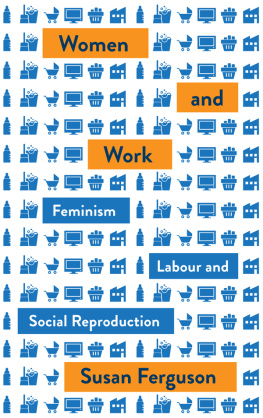They Call It Love
They Call It Love
The Politics of Emotional Life
Alva Gotby

First published by Verso 2023
Alva Gotby 2023
All rights reserved
The moral rights of the author have been asserted
1 3 5 7 9 10 8 6 4 2
Verso
UK: 6 Meard Street, London W1F 0EG
US: 388 Atlantic Avenue, Brooklyn, NY 11217
versobooks.com
Verso is the imprint of New Left Books
ISBN-13: 978-1-83976-703-6
ISBN-13: 978-1-83976-705-0 (UK EBK)
ISBN-13: 978-1-83976-706-7 (US EBK)
British Library Cataloguing in Publication Data
A catalogue record for this book is available from the British Library
Library of Congress Cataloging-in-Publication Data
Names: Gotby, Alva, author.
Title: They call it love : the politics of emotional life / Alva Gotby.
Description: London ; New York : Verso, [2022] | Includes bibliographical references.
Identifiers: LCCN 2022033522 (print) | LCCN 2022033523 (ebook) | ISBN 9781839767036 (hardback) | ISBN 9781839767067 (US ebook) | ISBN 9781839767050 (UK ebook)
Subjects: LCSH: WorkPsychological aspects. | CapitalismPsychological aspects. | Women caregiversPsychology. | Women caregiversSocial conditions. | Feminist theory.
Classification: LCC BF531 .G68 2022 (print) | LCC BF531 (ebook) | DDC 152.4/1dc23/eng/20220921
LC record available at https://lccn.loc.gov/2022033522
LC ebook record available at https://lccn.loc.gov/2022033523
Typeset in Sabon by Hewer Text UK Ltd, Edinburgh
Printed and bound by CPI Group (UK) Ltd, Croydon CR0 4YY
To my friends
Moments of taking charge of ourselves foreground themselves in a lot of forgettable necessity. An interesting story is made of agency, but humans exist as fully on this shadow side of helplessness as we do on the daylight side of doing what we want. To be cared for is the invisible substructure of autonomy, the necessary work brought about by the weakness of a human body across the span of life. Our gaze into the world is sometimes a needy one, a face that says love me, by which it means something like bring me some soup.
Anne Boyer, The Undying
Contents
How do you know you are loved? How do you know someone cares for you? Think about the small gestures of love all the little things that have made you feel cared for. Think about the times that felt nice, when you experienced the emotional warmth of being with other people. Who was creating that feeling? Who was working to make you feel safe, loved, and supported?
The work of caring for people is an essential but disavowed and devalued aspect of capitalist societies. Without the labour of ensuring that most people feel well enough to keep going to work, capitalism could not function. Capitalist society produces a lot of suffering, but many people work hard to alleviate one anothers pain, stress, and boredom. At the same time, this work creates emotional attachments not only to other people but to the world as we know it.
This book is about the politics of reproductive labour that is, the work that goes into maintaining and replacing the labour force and ensuring peoples wellbeing. This work includes both generational replacement, such as pregnancy and childcare, and the daily work of cooking, cleaning, doing laundry, and caring for the sick, disabled, and elderly. These forms of work are often referred to as social reproduction. A less visible form of reproduction is emotional support comforting those who feel angry or sad, cheering up a family member or friend, or creating a general spirit of niceness at home or at work. It also involves the work of building and maintaining communities and social relations. Emotion is essential for the reproduction of the workforce and for producing forms of sociality and subjectivity. Reproductive labour has an important emotional aspect the work of soothing children, providing company for the elderly, and maintaining intimate forms of sociality. This work is commonly known as love.
Emotion forms an integral part of social reproduction more broadly it is a key part of reproductive work. Therefore, I propose that we call this work emotional reproduction. Emotional reproduction is not something we usually think about or notice. It is the everyday work that we do for our family members, friends, co-workers, and others cheering up those who are feeling sad or lonely, creating emotional warmth. There is an assumption in our society that healthy adults can care for themselves and that only children and people with a mental illness need emotional support. But we are all dependent on one another. Adults as well as children need emotional care. And not only those with a mental illness need support from others all of us do. While therapy is perhaps the most obvious example of this labour of emotional support, I am mainly interested in the unseen everyday effort that goes into keeping most of us relatively emotionally healthy, and maybe even happy.
We work under conditions not of our own choosing. Most people have to work in order to meet their own needs and the needs of the people they are close to. Our working conditions are not the result of individual agency but rather stem from the social organisation of production and reproduction a system in which peoples needs are met within various relations of power. These needs are partly grounded in the biological life of human organisms, such as our need for food and shelter. But they can only be met in historically specific ways, which are also determined by our social position. For example, our need for shelter can be met by a tent or a suburban one-family house. The constitution of various ways to meet our needs also gives rise to new needs. The growth of the suburbs, for instance, also created a need for cars to take people to and from their workplaces. What constitutes a need varies according to the classed, racialised, and gendered assignment of people to various categories in society. This book explores the construction of emotional needs and the material and subjective organisation of the labour that is necessary to meet them.
Women have been made largely responsible for the work of creating good feeling. In the past few years, there has been a revived interest in Marxist feminist thought and issues of social reproduction in both academia and activist groups. Marxism posits that capitalist society is characterised by the exploitation of the working class, whose work produces more value for the capitalist class than they receive back in the form of wages. Marxist feminism expands this understanding of capitalism to include that which has been coded as womens work often done for free and out of love. With the recent revival of these theories, reproduction is being rediscovered as a central terrain of anti-capitalist struggle. Taking up the legacy of Marxist feminist writings from the late 1960s to the early 1980s, this new wave of research and organising aims to bring theories of reproductive labour into debates on the contemporary organisation of work. This means looking beyond womens unwaged domestic labour, the focus of much of the theoretical writings from the 1970s, to include various forms of waged employment in the reproductive sphere, such as childcare, nursing, and waged domestic labour.
Reproduction is an expansive field that contains the totality of the activities that sustain the lives of people under capitalism and maintain their capacity to work. Reproduction occupies a contradictory position in capitalist economies. It is necessary for the continued functioning of capitalist value production yet simultaneously devalued; geared towards the preservation of peoples capacity to labour yet often excluded from the waged workplace and the formal economy. It spans peoples unwaged work in their homes, commodified services, and some types of work associated with the public sector. Across these very different parts of the landscape of contemporary capitalism, people are working, with or without a wage, to ensure the relative wellbeing of other people.
Next page







